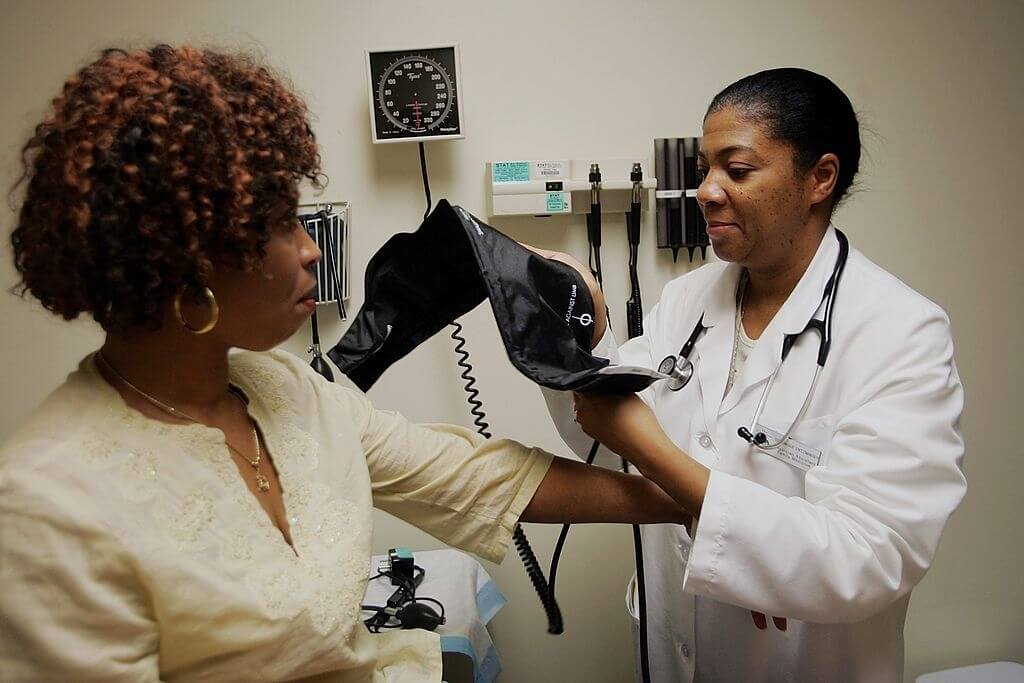A new study shows that although more Americans of color now have access to health insurance than they had 20 years ago, their views of their health condition have not changed at all. This is a contradictory result. Researchers discovered that the percentages of Black, Hispanic, or Asian Americans who did not have health insurance decreased between 1999 and 2018. This is a piece of encouraging news. The Affordable Care Act (commonly known as Obamacare), which expanded the Medicaid programs in several states, seemed to be a significant contributor to the decline.
Another point to consider is that, despite improvements in health insurance coverage, the high expense of health care remains a significant concern for Americans of all races and ethnicities. The situation actually became worse in at least one respect more Americans were avoiding medical care in 2018 due to the high expense of treatment. Furthermore, minorities claimed that they were no healthier in 2018 than they were two decades before when it came to self-reported health.
The Racial Disparities In Americans’ Health Have Not Decreased
The results are based on data from more than 596,000 people in the United States who participated in a quarterly government health survey between 1999 and 2018.
When asked to evaluate their health in 1999, low-income Black Americans were the most likely to indicate it was “bad” or “fair,” with 29 percent indicating it was either of those two options. This is in contrast to the approximately 6 percent of white people in the middle- to upper-income bracket. According to the findings of the research, such numbers have hardly changed by 2018.

A similar pattern emerged in the proportion of Hispanic and Asian Americans who evaluated their health as poor to fair, which remained stable regardless of wealth. One notable shift occurred, and it was in the wrong direction: low-income white Americans reported worse health in 2018 than they did in 1999, putting them on par with Black Americans with comparable wealth.
It all played out as the quality of health insurance coverage improved. In 1999, more than one-quarter of Hispanic Americans and 14 percent of both Black and Asian Americans were uninsured; by 2018, those numbers had improved in all categories, but racial inequalities continued to exist in coverage.
According to Alexander Ortega, a professor at Drexel University’s School of Public Health in Philadelphia, the Affordable Care Act helped more low-income Americans get health insurance via the expansion of Medicaid. However, as he pointed out, not all states participated in Medicaid expansion and those that did not tend to be poorer states in the southern United States. Furthermore, according to Ortega, having health insurance is just one component of the problem.
According to Ortega, who co-authored an editorial that was published with the research, health insurance does not always make medical treatment cheaper on a financial level. The results made this very clear: In 2018, compared to 1999, more Americans of all races said that they had missed medical treatment or medications in the previous year due to financial concerns. With one-fifth to one-quarter of low-income Black and white individuals reporting that they had forgone medical treatment, these were the groups with the greatest rates.
It is possible to feel financially stressed even when one has health insurance, according to Krumholz, because of the monthly premiums, co-payments, and other “cost-sharing.” The research found that racial inequalities in health ratings remained stubbornly persistent over time, despite efforts to close the gap.
Furthermore, the percentage of Americans across all ethnic groups, who experience “functional limits” or difficulties doing regular physical activities, has increased over time. According to Ortega, it’s challenging to feel and be well when people are worried about paying their rent and bills, can’t afford nutritious food, and don’t have access to safe areas to exercise.
According to Krumholz, there is no simple answer to the problem, as all of the above indicates. He pointed out that the United States spends a lot of money on medical treatments after individuals become ill or disabled and that this isn’t helping to improve Americans’ health. “It is past time for a comprehensive reevaluation of our system,” Krumholz said.